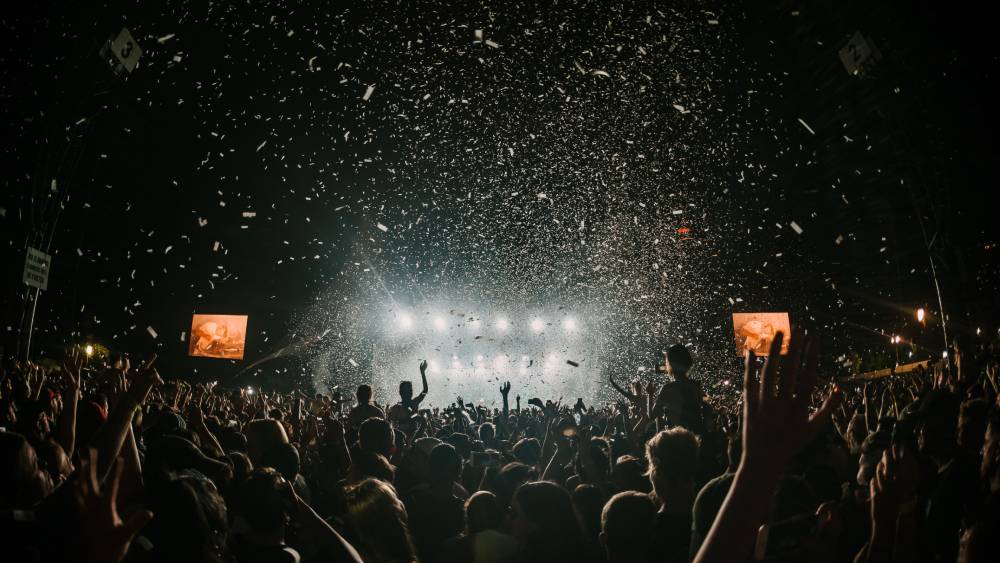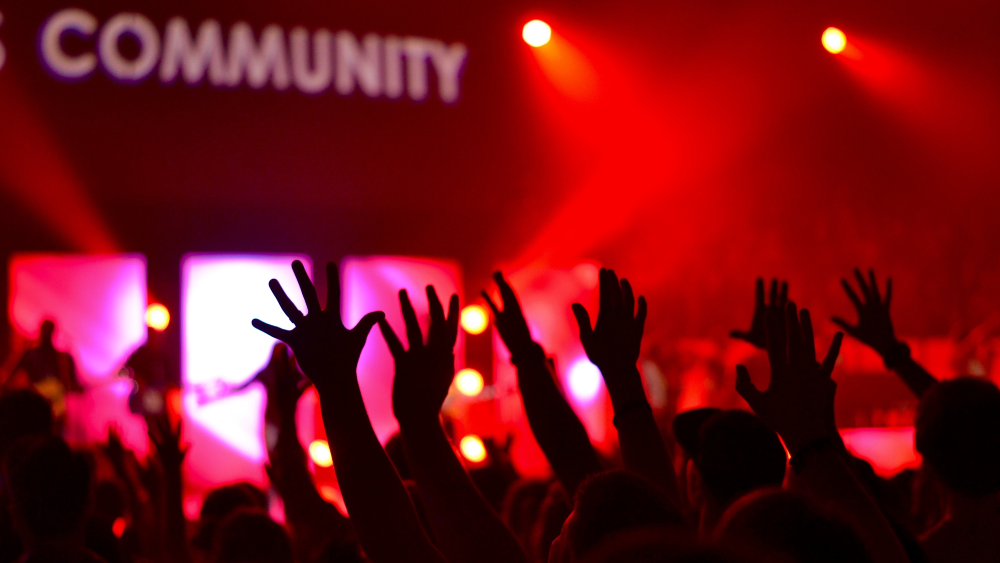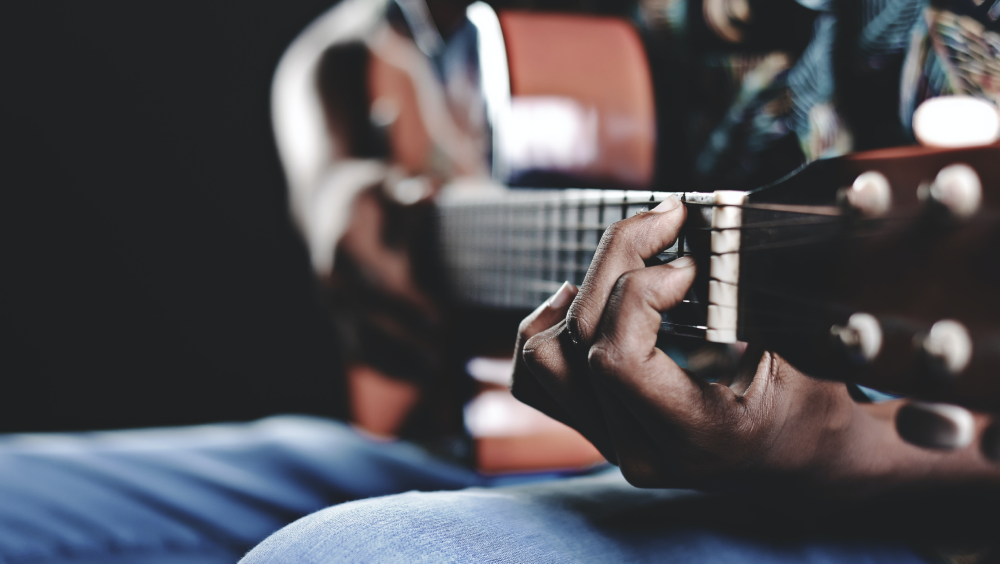Much of an artist's income can come from playing live.
But how do you build up your profile and get noticed by gig promoters, festival organisers and agents?
At BBC Introducing's Amplify event at the Excel Centre in London on Friday, a panel of agents, promoters and festival organisers discussed how they decide on lineups, how the festival and live music scene is changing in the UK and how new musicians can make their mark.
Hosted by BBC Radio 1 DJ Phil Taggart, the panel featured Joe Schiavon (Live Nation), Jon Mcildowie (Reading and Leeds/ Festival Republic), Matt Bates (Primary Talent), Anna Bewers (United Talent) and Steve Tilley (Kilimanjaro Live).
Here's what we learned...
Play your local scene
Anna: It's slightly demoralising at the start playing to 10 people but if those 10 people then tell 10 other people then this is the way you're going to build yourself. You've got to build your own fanbase from the bottom up.
Jon: Get to know your local industry. Your local promoter will be a massive asset because often they've been doing it a few years, they know people and they can do introductions.
Steve: The small venue circuit is vital. Bands should play with local promoters before we get involved.
Pay attention to your social media
Jon: There are so many measures now of whether an act is actually connecting. For me [when booking an act], it's a combination of do I like it but also what's their Facebook done in the last 12 months? Are they growing? Are their YouTube numbers going up?
Be nice
Steve: You've got to remember that the most important person in the room is probably going to be the sound engineer. He might be getting a shit wage and if you turn up with an attitude... he's just gonna pull you back and go 'there you go, you sound shit now lads.' So be nice to people, be grateful. People will want to do things for you.
Matt: There's no excuse for rock 'n' roll behaviour. If you're doing your first shows, you don't know who most of the people you're dealing with are, or where they're gonna be in two years. If you're nice to the other bands, maybe they'll be on a tour next year and they'll be like, 'oh we had a good time playing with so-and-so last year and we need a support for our London show. Let's have them back.'
Don't forget about merch
Anna: [On making money from a show] A lot of the time it's about your merchandise. If you're making good merch and you're selling a lot, that's a great way to start touring.
Jon - You've got to be smart when you’re on tour and think about where are the opportunities to make money.
Don't play your first industry show until you're ready
Matt: 15 years ago, a band would have played 100 gigs before they got an agent. Now you're taking on a band after their first guitar lesson because it's so competitive to get in early! That's not a good thing. All the bands I've had that have been successful had a couple of years of learning their craft, going out there and doing it.
The ones whose first gig was full of industry in Hoxton almost instantly died because they haven't had that time to grow and develop themselves. I think if a band have played 50, 100 gigs and are thinking it's not happening, it's a blessing in disguise. They've had that practice first before the industry is aware of them. Don’t play live until you’re ready.
Don't be afraid to reinvent yourself
Jon: The industry has changed. It used to be that our community could write off an act and say 'their career is over'. The beauty of what happens now is we’re reactive to the audience and the audience doesn’t give a fuck which band you were in last time. The audience will love you for who you are.
But how do you build up your profile and get noticed by gig promoters, festival organisers and agents?
At BBC Introducing's Amplify event at the Excel Centre in London on Friday, a panel of agents, promoters and festival organisers discussed how they decide on lineups, how the festival and live music scene is changing in the UK and how new musicians can make their mark.
Hosted by BBC Radio 1 DJ Phil Taggart, the panel featured Joe Schiavon (Live Nation), Jon Mcildowie (Reading and Leeds/ Festival Republic), Matt Bates (Primary Talent), Anna Bewers (United Talent) and Steve Tilley (Kilimanjaro Live).
Here's what we learned...
Play your local scene
Anna: It's slightly demoralising at the start playing to 10 people but if those 10 people then tell 10 other people then this is the way you're going to build yourself. You've got to build your own fanbase from the bottom up.
Jon: Get to know your local industry. Your local promoter will be a massive asset because often they've been doing it a few years, they know people and they can do introductions.
Steve: The small venue circuit is vital. Bands should play with local promoters before we get involved.
Pay attention to your social media
Jon: There are so many measures now of whether an act is actually connecting. For me [when booking an act], it's a combination of do I like it but also what's their Facebook done in the last 12 months? Are they growing? Are their YouTube numbers going up?
Be nice
Steve: You've got to remember that the most important person in the room is probably going to be the sound engineer. He might be getting a shit wage and if you turn up with an attitude... he's just gonna pull you back and go 'there you go, you sound shit now lads.' So be nice to people, be grateful. People will want to do things for you.
Matt: There's no excuse for rock 'n' roll behaviour. If you're doing your first shows, you don't know who most of the people you're dealing with are, or where they're gonna be in two years. If you're nice to the other bands, maybe they'll be on a tour next year and they'll be like, 'oh we had a good time playing with so-and-so last year and we need a support for our London show. Let's have them back.'
Don't forget about merch
Anna: [On making money from a show] A lot of the time it's about your merchandise. If you're making good merch and you're selling a lot, that's a great way to start touring.
Jon - You've got to be smart when you’re on tour and think about where are the opportunities to make money.
Don't play your first industry show until you're ready
Matt: 15 years ago, a band would have played 100 gigs before they got an agent. Now you're taking on a band after their first guitar lesson because it's so competitive to get in early! That's not a good thing. All the bands I've had that have been successful had a couple of years of learning their craft, going out there and doing it.
The ones whose first gig was full of industry in Hoxton almost instantly died because they haven't had that time to grow and develop themselves. I think if a band have played 50, 100 gigs and are thinking it's not happening, it's a blessing in disguise. They've had that practice first before the industry is aware of them. Don’t play live until you’re ready.
Don't be afraid to reinvent yourself
Jon: The industry has changed. It used to be that our community could write off an act and say 'their career is over'. The beauty of what happens now is we’re reactive to the audience and the audience doesn’t give a fuck which band you were in last time. The audience will love you for who you are.




